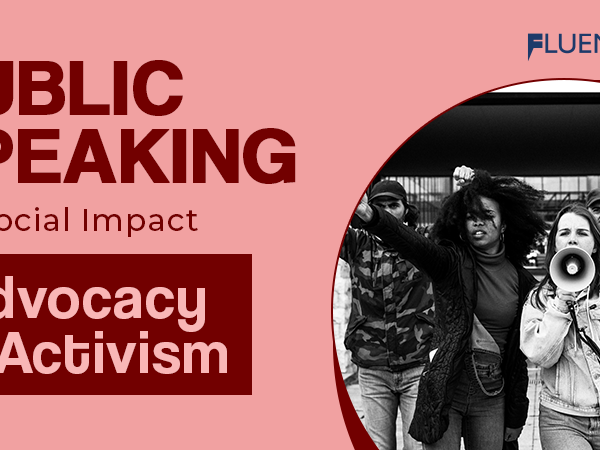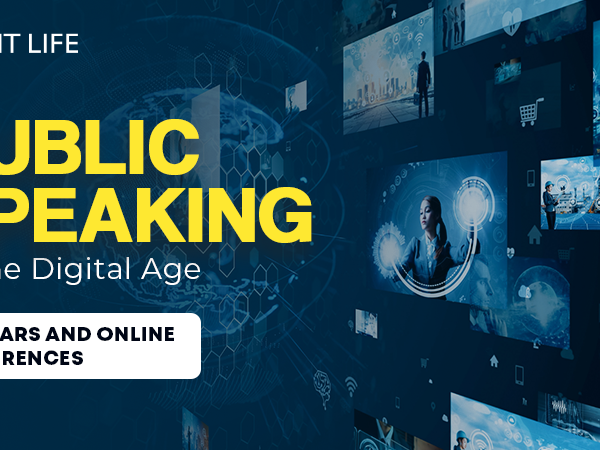To ensure responsible communication in public speaking, this introduction sets the stage for our exploration of public speaking ethics. By defining public speaking ethics and emphasizing the importance of responsible communication, we establish the foundation for ethical practices and effective public speaking engagement.
Definition of public speaking ethics
Public speaking ethics involve moral standards and principles which guide people when giving speeches or presentations in public. This includes honesty, respect, credibility, and fairness.
To have ethical public speaking, speakers must be honest by giving accurate facts and not lying. They must also show respect to their audience by talking without insults or hurtful language.
Credibility is key too. Speakers must prove they know the subject and provide evidence. They should not exaggerate or lie which would damage their trustworthiness.
Fairness is a must. Speakers must present different points of view without bias. They should give equal attention to counterarguments, without distorting or ignoring them.
To uphold these ethics, speakers can research thoroughly before preparing. They can actively listen to their audience’s needs and interests.
They can also use visuals to help understand and engage their audience. Lastly, they should maintain eye contact with the crowd to build trust.
Adhering to ethical standards in public speaking is very important. It preserves integrity and builds trust with the audience. Honesty, respect, credibility, and fairness are essential for effective communication and inspiring trust.
Importance of responsible communication in public speaking ethics
Public speaking is a responsible communication skill. It needs ideas and info to be shared with an audience, considering their needs, perspectives, and sensitivities. Empathy and emotional intelligence are key to responsible communication. Power dynamics must be respected and not reinforced. An inclusive environment should be created where everyone is valued.
Research and fact-checking is crucial for accurate info. This maintains credibility and encourages trust. Bias should be acknowledged and consciously worked on. Effective listening is also important, to respond respectfully and create dialogue. This encourages critical thinking and openness to other perspectives.
Also Read: Find Your Passion: A Path to Self-Discovery and Fulfillment
Ethical Principles in Public Speaking
To ensure ethical principles in public speaking, address the following sub-sections: honesty and truthfulness, respect for the audience, integrity and transparency, and avoiding plagiarism. Upholding these principles fosters responsible communication and maintains the credibility and trust between speakers and their audience.
Honesty and truthfulness – Public Speaking Ethics
To show honesty and truthfulness in public speaking, one must prepare and research the topic. Get info from reliable sources like journals, websites, and expert opinions. Do this so you can confidently present ideas based on facts.
Be transparent about any biases or conflicts of interest. Acknowledge these to show commitment to honesty and avoid any doubts from the audience.
Avoid exaggeration or embellishment when presenting info. Accurately represent the facts without distorting for dramatic effect. This maintains integrity and ensures the audience gets accurate info.
If there are uncertainties or gaps in knowledge, honestly admit them. Don’t make assumptions or provide misleading info. Show humility and authenticity to prevent misinformation.
Overall, upholding principles of honesty and truthfulness in public speaking leads to credibility and trust with the audience. Listeners rely on accurate info from an honest speaker and are more likely to engage with the message.
Practice active listening skills to understand audience needs and concerns. This will help tailor the message while maintaining honesty and truthfulness.
Respect for audience – Public Speaking Ethics
Respect your audience! It’s key to a successful public speaking engagement. Show that you value them. Make them more likely to engage with your message.
Start by preparing thoroughly. Tailor your speech to their needs and interests. Show that you value their time.
Be mindful of language and tone. Use clear sentences. Avoid jargon unless needed.
Listen to their feedback. Encourage participation with interactive elements. Foster inclusivity within the audience.
Consider the physical aspects. Ensure proper lighting and acoustics. Use visual aids wisely.
Aware of cultural sensitivities. Respect values and beliefs. Avoid offensive topics unless necessary. Create an atmosphere of respect.
Integrity and transparency – Public Speaking Ethics
Be honest in your info-sharing. Don’t distort facts or make exaggerated claims, as this will damage your integrity. Clearly cite sources and provide proof to back up your statements. This shows responsibility and builds credibility. Disclose any affiliations or biases that could affect the speech content, so the audience can make their own decisions. Respect confidentiality when needed. Keep sensitive info secret and don’t share it without permission.
Live with integrity and transparency when speaking publicly. This not only boosts your credibility but also helps you build relationships with the audience. Set expectations for integrity and transparency at the start of your speech. This will help create a trusting space and encourage participation. By following ethical principles, you show others how to do the same and promote a culture of honesty in public speaking. Let’s make use of these values today, for a better tomorrow!
Avoiding plagiarism – Public Speaking Ethics
To dodge plagiarism, here are some important guidelines to follow:
- Principle – Description
- Cite Sources – Give proper credit for info taken from outside.
- Paraphrase – Express your thoughts in your own words.
- Use Quotations – Put quotation marks when quoting directly.
- Reference Page – Include a list of all sources used.
Even if you switch a few words, it still counts as plagiarism.
Plagiarism has been a problem in public speaking for many years. Famous figures like MLK Jr. and Joe Biden have been accused of plagiarism. To keep credibility, public speakers must be original and use ethical practices.
Also Read: Techniques for Innovative Thinking: Boost Creative Thinking
Ethical Challenges in Public Speaking
To navigate ethical challenges in public speaking, employ principles of responsible communication. Balancing persuasion and manipulation, handling sensitive topics, and ensuring diversity and inclusivity in speech content are key sub-sections explored here.
Balancing persuasion and manipulation
Public speaking is a balance between persuasion and manipulation. We can influence others, but we must be careful not to use manipulative tactics. Engage your audience honestly and ethically, with compelling ideas – without resorting to deceptive techniques.
Seek to convince your listeners with logical arguments, supported by evidence. Use rhetoric and storytelling to captivate their attention. There is a fine line between persuasion and manipulation – manipulation involves deceitful tactics or exploiting vulnerabilities, while persuasion relies on honest communication.
Be mindful of your intentions and impact – strive for authenticity. Share accurate and reliable information to build trust with your audience; ensure that they make informed decisions, rather than being coerced or misled.
Choose persuasion over manipulation – let your words empower others, not deceive them!
Handling sensitive topics
Talking in public can be tricky, especially when it’s about delicate themes. You must be careful, respectful and professional when dealing with them. It’s a matter of finding the balance between expressing your opinion while keeping in mind the potential effect on the listeners.
For delicate topics, empathy and understanding are essential. Acknowledge the different views to create an open and welcoming setting. Doing thorough research is also important to have a full grasp of the subject.
Moreover, the language you use is vital. Utilize respectful and inclusive terms to communicate effectively without causing any harm.
Moreover, being aware of your own prejudices and trying to be impartial while speaking is necessary. That way, you can share info without injecting your personal opinions.
As Maya Angelou said: “Words have more power than what’s written on paper
“. So, be mindful of the words you use when talking about sensitive matters publicly.
Ensuring diversity and inclusivity in speech content
Ensuring diverse and inclusive speech content is essential for public speaking. It involves considering different perspectives and engaging with a wide variety of people. Doing this creates a more relatable and meaningful message.
Importance of Diversity:
- Reflects the real world.
- Encourages empathy and understanding.
- Breaks down barriers and encourages inclusivity.
Embracing diversity means recognizing varied cultures, backgrounds, and experiences. It enables speakers to connect deeper with their audience, creating a sense of belonging and appreciation. Considering diverse points of view helps to confront prejudices and stereotypes, enabling a healthier flow of ideas.
To make sure speech content is inclusive, one must strive for representation across different aspects such as gender, race, ethnicity, age, ability, and sexual orientation. This goes beyond tokenism – it requires genuine efforts to understand different perspectives and amplify diverse voices.
Let us keep in mind that embracing diversity in speech content is not only a moral obligation but also a potent force for social change. By creating an atmosphere that values everyone’s contributions equally, we can inspire beneficial changes within ourselves and society.
So let’s include diversity in our speeches today!
Also Read: Impact of Physical Fitness: Boost Self-Improvement
Case Studies: Examples of Ethical and Unethical Public Speaking
To better understand ethical and unethical public speaking, dive into case studies that showcase real-life examples. Explore ethical examples and unethical examples, highlighting the principles of responsible communication.
Ethical examples
Public speaking can either inspire or deceive. Ethically, it must be accurate and honest. Here are examples of ethical public speaking:
- A balanced approach – presenting both sides of an argument.
- Respecting diversity – accepting and valuing different cultures.
- Emphasis on consent – always seek permission before using personal stories.
- Engagement with the audience – active listening, interaction and participation.
Truthfulness is key in ethical public speaking. Present facts without bias to build trust. John Dawson’s TED Talk is a great example. He used complex scientific data in a way that was understandable for all. He communicated the urgency of climate change ethically and accurately.
Unethical examples
Public speaking is a tool to motivate, inform, and convince an audience. But, there are times when it goes against ethics. Here are some:
- Plagiarism: Giving a presentation with other people’s words or ideas without giving due credit is wrong.
- Misrepresentation: Giving false info or distorting facts to manipulate the audience is unethical.
- Exploitation: Using emotionally charged stories or personal tragedies to get sympathy or support is wrong.
- Hate speech: Discriminating, prejudicing, or hating individuals or groups based on race, gender, religion, or any other characteristic is not okay.
- Conflict of interest: Not disclosing financial or personal interests that may influence the message undermines trustworthiness.
Note: These are just a few examples. There might be others.
As public speakers, it’s important to make sure our talks are engaging and ethical. By respecting others’ property rights, giving honest info, avoiding exploitation, promoting inclusivity, and revealing conflicts of interest, we can keep our speeches effective.
Pro Tip: An essential part of ethical speaking is being transparent with your audience. Honesty and truthfulness build trust and credibility.
Also Read: Setting SMART Goals for Personal Growth: A Step-by-Step Guide
Strategies for Responsible Communication
To effectively practice responsible communication, you need strategies that address key aspects of public speaking ethics. In “Strategies for Responsible Communication,” we’ll explore techniques that focus on preparing and researching thoroughly, being mindful of the impact of words and language, as well as engaging in active listening and responding to audience feedback. These approaches will help you become a more ethical and responsible communicator.
Preparing and researching thoroughly
- Research your topic extensively for a deep understanding. This will ensure you give accurate and relevant information.
- Organize your thoughts before communicating. This helps give structure and coherence.
- Double-check facts and figures to maintain credibility. Accurate data adds reliability to your communication.
- For best results, go beyond surface-level details. Look into lesser-known aspects to offer a new viewpoint.
Pro Tip: Use scholarly articles or peer-reviewed publications for reliable info.
Being mindful of the impact of words and language
The power of language can’t be overlooked. Each word we say or type carries the strength to form thoughts, opinions, and even encourage action. We must understand this power and take responsibility for our messages.
To truly grasp the effects of our words, we must consider many factors, such as cultural awareness, emotional responses, and the authority involved in any situation.
Also, when speaking, it’s essential to use language that is open-minded and not prejudicial. This helps make an environment where everyone feels appreciated and accepted. To do this, avoid judgemental terms, stereotypes, or generalizations.
Moreover, it’s important to bear in mind the context in which we communicate. The same message may have different impacts based on if it’s spoken in person, written in an email, or posted on social media. We can make sure our ideas are accurately represented by adjusting our words to the medium.
Furthermore, active listening is a central part of responsible communication. Taking the time to understand someone else’s perspective allows for efficient dialogue and engagement. This shows respect for their views and encourages mutual understanding.
To further improve responsible communication, here are a few tips:
- Show empathy by thinking about how others feel before expressing your views or making judgments. Doing this allows us to connect with people on a deeper level and encourages open-mindedness.
- Ask questions when conversations are unclear or confusing. Not only does this ensure understanding, but it also demonstrates a real interest in what others have to say.
Lastly, always strive for clarity in your own communication. Being straightforward and specific helps avoid misunderstandings and keeps the conversation on track.
By taking into account the impact of our words, selecting inclusive language, adapting to different contexts, actively listening, practicing empathy, seeking clarifications, and striving for clarity, we can create a responsible communication culture where ideas are exchanged and understood with respect.
Engaging in active listening and responding to audience feedback
Active listening involves more than just hearing words. It’s about taking in the non-verbal cues like facial expressions and body language too. This is important as it provides us with invaluable insights into how our audience really feels about our efforts.
An example of this in action is from 2019. A well-known company faced negative feedback about a product launch. Instead of ignoring it, they actively listened. They considered the concerns raised and acted to fix it. By admitting mistakes and finding solutions based on customer feedback, they regained trust, improved customer satisfaction, and even increased sales!
This proves that active listening and responding to audience feedback is key. It can create an open communication culture, strengthen relationships, and help our message resonate. Remember, effective communication is a two-way street! Valuing and responding to feedback ensures success.
Also Read: Top 100 Commonly Used A to Z Phrasal Verbs for English Fluency
Conclusion
To conclude, reinforce the ethical principles in public speaking and emphasize the importance of practicing responsible communication. Recap the ethical principles covered in previous sections and discuss the significance of adopting these principles in our speech. Highlight the value of responsible communication for building trust and fostering positive relationships.
Recap of ethical principles in public speaking
Public speaking requires sticking to ethical principles. Let’s review these key principles:
- Honesty: Be honest to the audience. Don’t exaggerate or lie. This builds trust and reliability.
- Respect: Respect different opinions. No language or behavior which offends or leaves people out.
- Integrity: Be consistent and genuine in what you say and do. Match values and words to gain trust.
Plus, confidentiality, fairness, and responsibility should be kept in mind while speaking publicly.
An example illustrating the importance of ethical principles? At a conference, the speaker was impressive. But in the Q&A session, he evaded questions and even made false claims. This unethical behavior made people feel deceived. It was a lesson on the importance of ethical standards in public speaking.
Ethical principles make it easier for speakers and audiences to connect. They show respect, trust, and integrity. Remembering these principles helps our message reach each listener in a genuine way.
Importance of practicing responsible communication.
In today’s fast-paced world, responsible communication is essential. It helps us make sure our messages are understood. Plus, it builds trust and maintains healthy relationships.
Responsible communication avoids misinterpretations and conflicts. We can pick our words carefully and think of the impact they have. This way, we show respect and create a positive atmosphere for discussion.
Responsible communication also boosts our credibility and professionalism. We can express ourselves clearly and concisely, so it’s easier for others to understand.
It’s also great for navigating sensitive subjects. We can express criticism without causing offense or harm. This encourages dialogue, rather than shutting it down.
Remember: Responsible communication is a two-way street. Listening is just as important as speaking. Show others the same respect and attention you expect from them. Know More – The Fluent Life
Frequently Asked Questions
1. What are public speaking ethics?
A. Public speaking ethics refer to the principles and guidelines that govern responsible communication during public speaking engagements. They outline the ethical obligations and responsibilities speakers have towards their audience, content, and the impact their words may have on individuals or society.
2. Why are public speaking ethics important?
A. Public speaking ethics are important because they ensure that speakers communicate responsibly, truthfully, and with integrity. They help maintain credibility, foster trust between the speaker and the audience, and promote respectful and ethical discourse in public spaces.
3. What are some key principles of responsible communication in public speaking?
A. Some key principles of responsible communication in public speaking include honesty, accuracy, respect for diverse perspectives, avoiding harm, maintaining confidentiality when required, citing sources properly, and being mindful of the potential impact of words on others.
4. How can a speaker avoid unethical behavior during a public speaking engagement?
A. A speaker can avoid unethical behavior during a public speaking engagement by conducting thorough research, fact-checking information before presenting it, avoiding plagiarism, using inclusive language, respecting the audience’s privacy and boundaries, and being open to feedback and constructive criticism.
5. Can public speaking ethics restrict freedom of speech?
A. No, public speaking ethics do not restrict freedom of speech. They aim to promote responsible and ethical communication without infringing on individuals’ rights to express their opinions. Public speaking ethics provide guidelines to ensure that speeches are delivered in a manner that respects the dignity and rights of others.
6. What can the audience do if they suspect a speaker is engaging in unethical behavior?
A. If an audience member suspects a speaker is engaging in unethical behavior, they can actively listen, critically analyze the speech, and if appropriate, ask for clarifications or challenge the speaker’s statements during Q&A sessions. Additionally, they can report their concerns to event organizers or relevant authorities, where necessary.






